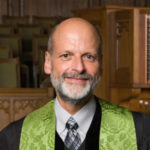 Good morning!
Good morning!
I hope this day finds you and your family well. I invite you to take a few moments with me to read and reflect upon today’s scripture selection — and to carry these thoughts with you into your day.
Today’s Scripture: Philippians 4:4-9
4 Rejoice[a] in the Lord always; again I will say, Rejoice.[b] 5 Let your gentleness be known to everyone. The Lord is near. 6 Do not worry about anything, but in everything by prayer and supplication with thanksgiving let your requests be made known to God. 7 And the peace of God, which surpasses all understanding, will guard your hearts and your minds in Christ Jesus.
8 Finally, beloved,[c] whatever is true, whatever is honorable, whatever is just, whatever is pure, whatever is pleasing, whatever is commendable, if there is any excellence and if there is anything worthy of praise, think about[d] these things. 9 Keep on doing the things that you have learned and received and heard and seen in me, and the God of peace will be with you.
Tim’s Devotional Reflection for Today
Here’s today’s question: What’s on your mind?
In other words, what are you thinking about? When you’re not thinking about anything in particular, what do you find yourself thinking about? When your imagination runs wild, where does it take you?
When Paul wrote this letter to the Philippians, he was in prison. Perhaps that is why Paul is so focused on the interior life — the head and the heart.
Paul challenged the Philippians of his day and challenges us in our day to pay attention to our thought life. There are probably a lot of reasons why Paul advises this deep inner focus. For one thing, what we think about really shapes who we are.
Gil Hodges was the manager of the so-called miracle Mets baseball team of 1969. After a horrible season in 1968 they made a great turnaround under Hodges and beat Baltimore in the World Series in five games.
Hodge’s heart attack the year before had much to do with the turnaround because as he recovered, he determined to stress to his players the fundamentals of the game and the proper attitude toward defeat. This is the way he put it: “You tend to become what you think about.” (Elliot Johnson, The Point After, [Grand Rapids, Michigan: Daybreak Books, Zondervan Publishing House, 1987])
You tend to become what you think about. What does that mean for us in practical terms? It means that we need to pay attention to our thought life: what we think, what we dream, and what we imagine.
I can pay attention and track a lot about my life. I wear a device that tracks the number of steps I make, the number of flights of stairs I take, the number of my active minutes, and the calories I burn each day. At any given moment, I can also check my heart rate. It also tracks the amount and quality of my sleep. I have an app for entering the food I eat and recording my weight.
But, I don’t have an app for tracking what I think about, what I dream about, or what I imagine.
John Wesley, the founder of the Methodist movement, started keeping track of his thought life when he was a student at Oxford University. Wesley kept a diary where he recorded the resolutions he had kept or broken and what he called his “temper of devotion.”
He started out doing this daily but then progressed until he did this hourly. It was, frankly, a bit compulsive. I have a mixture of awe and horror at the thought!
Why would he do such a thing?
I think it is because you tend to become what you think about. Our thoughts do make a difference; our dreams do make a difference; and perhaps most important of all, what we imagine does makes a difference.
In the second chapter of Philippians, Paul says, “Have the same mind in you that was in Christ Jesus.” When we think with the mind of Christ, when we imagine what he is calling us to do and who God is calling us to be, then we can see the great possibilities God has in store.
Thinking with the mind of Christ also makes it much easier to see God at work around us, in us, and through us. In that light, Paul calls us to think about these things: “whatever is true, whatever is honorable, whatever is just, whatever is pure, whatever is pleasing, whatever is commendable, if there is any excellence and if there is anything worthy of praise, think about these things.”
How do our thoughts make a difference?
Thoughts affect our relationships with others.
Thoughts affect our relationship with God.
Thoughts affect our mental, physical, and spiritual health.
Thoughts precede actions.
Knowing that our imagination has the power to bring about action, just imagine what good we can do when we work together. The kind of love of God, love of self, and love of others to which God calls us comes down to an act of will that becomes a habit.
It is an act of the will that says, Today, I will pay attention to my thinking.
I will replace false thoughts with true thoughts,
I will replace dishonorable thoughts with honorable thoughts,
I will replace thoughts of injustice with just thoughts,
I will replace impure thoughts with pure thoughts,
I will replace disturbing thoughts with pleasing thoughts,
I will replace despicable thoughts with commendable thoughts,
I will strive for excellence in my thoughts, and I will concentrate on that which is worthy of praise.
What a difference it will make in our lives if we think about those things and about God’s action in our lives and in our world.
Imagine!
Hymn Suggestion: “Love Divine, all Loves Excelling”
Charles Wesley (1747)
Love divine, all loves excelling,
joy of heav’n, to earth come down,
fix in us thy humble dwelling,
all thy faithful mercies crown.
Jesus, thou art all compassion,
pure, unbounded love thou art.
Visit us with thy salvation;
enter ev’ry trembling heart.
Breathe, O breathe thy loving Spirit
into ev’ry troubled breast.
Let us all in thee inherit,
let us find the promised rest.
Take away the love of sinning;
Alpha and Omega be.
End of faith, as its beginning,
set our hearts at liberty.
Come, Almighty, to deliver,
let us all thy life receive.
Suddenly return, and never,
nevermore they temples leave.
Thee we would be always blessing,
serve thee as thy hosts above,
pray, and praise thee without ceasing,
glory in thy perfect love.
Finish, then, thy new creation;
true and spotless let us be.
Let us see thy great salvation
perfectly restored in thee.
Changed from glory into glory,
till in heav’n we take our place,
till we cast our crowns before thee,
lost in wonder, love and praise.
Thank you for sharing this moment of your day with me, with God, and with these reflections on a portion of scripture. I hope you will carry these with you throughout your day and night.
Grace and Peace,
![]()
Dr. Tim Bruster
Senior Pastor

